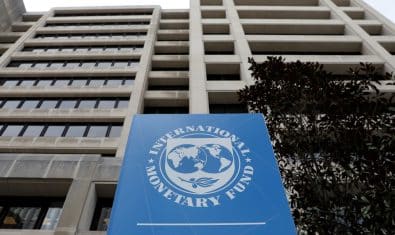The Federal Cabinet approved the Budget Strategy Paper (BSP) for the next fiscal year (FY22), in line with the directives of the International Monetary Fund (IMF) program.
The new budget includes a significant focus on higher contributions from provinces to finance the fiscal deficit. There is reportedly also a stringent control over major expenditures, including defense, pension, and civil government expenditures, creating room for higher interest payments.
The budgetary allocation for FY22 has been put at Rs. 1.330 trillion for defense which is 2.7 percent higher than the current fiscal year. Estimates for debt servicing have been put at Rs. 3.1 trillion for next year, nearly 6.3 percent higher than the current year.
Gross federal revenues are estimated to go up by a significant 25 percent to Rs. 7.99 trillion. The strategy paper also targets an economic growth rate of 4.2 percent for the next year, Dawn News reported.
Other targets set by the strategy paper include about 8 percent rate of inflation, budget deficit at 6 percent of GDP, and 84.3 percent of public debt to GDP ratio.
Gross federal revenues are estimated to go up by more than 25 percent on account of a series of tax adjustments like widening of GST and income tax net, besides continually banking on several non-tax revenues like petroleum levy and so on.
Pension allocations for FY22 have been set at Rs. 480 billion (up from Rs. 470 billion in the current fiscal year), while the operations of the civil government would consume Rs. 510 billion next year (up from Rs. 488 billion this year).
The meeting also cleared the Medium-Term Budget Strategy Paper (MTBSP) for FY2021-22 to FY 2023-24.
According to the Ministry of Finance, the MTBSP has a focus on sustainable growth, job creation, protection of vulnerable segments of society, inflation and price control, prime minister’s special initiatives, and reduction of twin deficits.
On the revenue side, considering tax reforms, the paper is focused on corporate income tax reforms for removal of undesirable tax credits, accelerated depreciation, exemptions, reduced rates, exemption from specific provisions, etc.
Many of these have already been taken down recently through the promulgation of Tax Laws (Second Amendment) Ordinance, 2021.
Also, agreed in the IMF program matrix are the personal Income Tax Reforms for removal of unnecessary exemptions and rationalization of tax rates, and reduction of tax slabs. The measures further aim at reducing dependence on withholding taxes.
Nine withholding taxes have already been abolished, and further reduction is under consideration. The FBR will also be rationalizing presumptive and minimum tax regimes.
Furthermore, regarding the general sales tax, the paper says that exemptions and concessions available to all goods except essential food items, health, and education-related goods are to be reviewed.

























